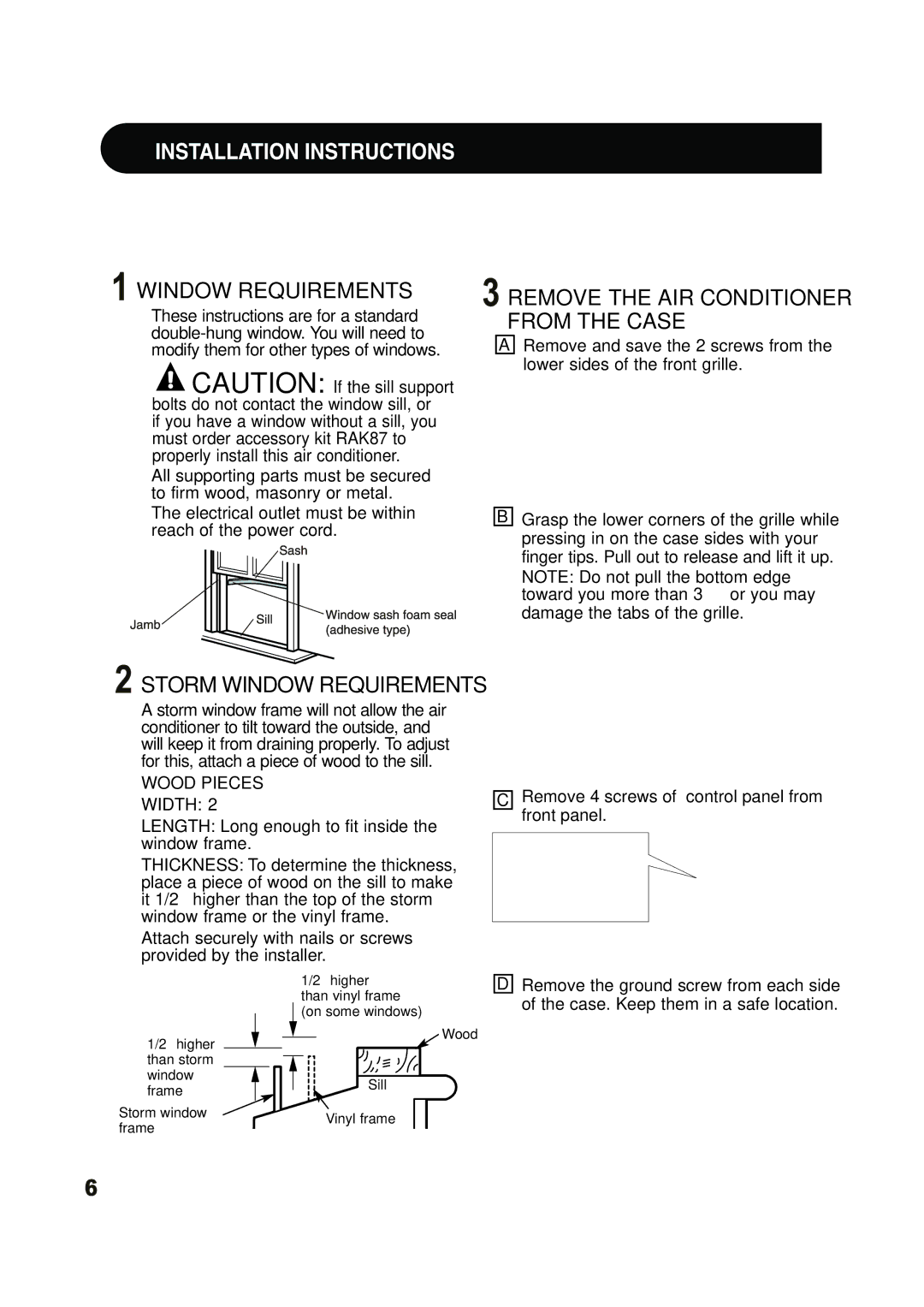AF-Q100PX, AF-Q120PX specifications
The Sharp AF-Q120PX and AF-Q100PX are exceptional air conditioning units designed for residential and small commercial applications, providing efficient cooling along with advanced technologies that ensure optimal performance and user convenience. Both models are engineered with a focus on energy efficiency, making them ideal choices for environmentally conscious consumers.One of the standout features of the AF-Q120PX and AF-Q100PX is their inverter technology. This technology allows the compressor to adjust its speed according to the cooling demand, ensuring that the desired temperature is achieved quickly while consuming less energy. This not only reduces electricity bills but also enhances the longevity of the unit.
Both models are equipped with a powerful dual airflow system, which ensures an even distribution of cool air throughout the room. The strategically placed air vents can be adjusted to direct airflow where it is needed most, enhancing comfort levels across the space. They also feature a turbo mode that allows for rapid cooling, perfect for those scorching summer days.
The user-friendly remote control features allow users to adjust settings from anywhere in the room, making operation effortless. Both models come with programmable timers and sleep modes, enabling users to set specific cooling schedules that accommodate their lifestyle, thereby improving energy efficiency and comfort at night.
In terms of build quality, both the AF-Q120PX and AF-Q100PX are designed with durable materials that resist corrosion and wear, ensuring they can withstand the rigors of continuous use. The sleek, modern design complements a variety of interior styles, making them not only functional but also aesthetically pleasing.
Additionally, these air conditioning units are equipped with advanced filtration systems that help improve indoor air quality. They effectively capture dust, allergens, and other particulate matter, providing a cleaner and healthier environment.
In summary, the Sharp AF-Q120PX and AF-Q100PX deliver a combination of advanced technology, energy efficiency, and user-friendly features. With their inverter technology, dual airflow systems, and robust filtration capabilities, these air conditioners are designed to provide maximum comfort while minimizing energy usage, making them valuable additions to any home or office space.

